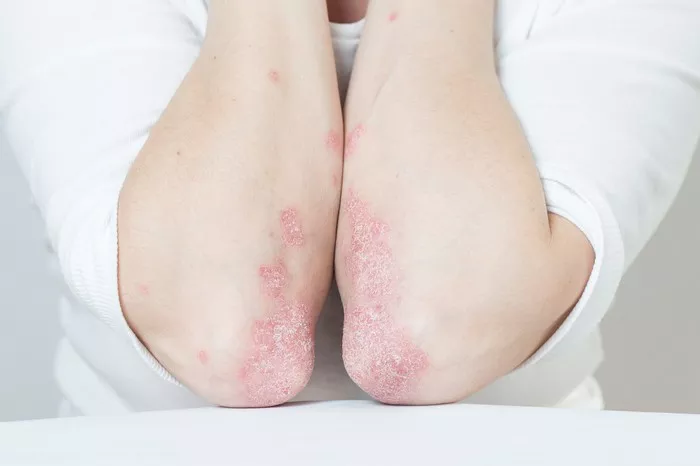Eczema, or atopic dermatitis, is a skin condition that causes redness, itching, and inflammation. For those who experience flare-ups, it can be both uncomfortable and frustrating. Thankfully, there are steps you can take to manage symptoms, reduce flare-ups, and prevent them in the future. Here’s a detailed guide to help you address eczema flare-ups effectively.
Understand Your Triggers
Eczema flare-ups often occur due to specific triggers. Identifying these can help you avoid them and reduce the frequency of flare-ups.
Allergens: Common allergens include dust mites, pollen, and pet dander.
Irritants: Harsh soaps, detergents, and certain fabrics can irritate sensitive skin.
Food sensitivities: Foods like dairy, eggs, and nuts may worsen eczema for some people.
Climate: Extremely dry or cold weather can dry out the skin and cause flare-ups.
Stress: Emotional stress can weaken the skin barrier and lead to inflammation.
Keeping a journal to track your flare-ups can help you identify patterns and triggers.
Moisturize Regularly
Moisturizing is one of the most important steps in managing eczema. When your skin is hydrated, it is less likely to become dry and irritated.
- Choose a thick, fragrance-free cream or ointment for best results.
- Apply moisturizer immediately after bathing to lock in moisture.
- Use a moisturizer at least twice a day, even if your skin doesn’t feel dry.
Use Lukewarm Water for Bathing
Hot water can strip the skin of its natural oils, making eczema worse. Instead:
- Take lukewarm baths or showers.
- Limit bathing time to 10-15 minutes.
- Add a colloidal oatmeal or a doctor-recommended emollient to the bath for added relief.
Pat Skin Dry, Don’t Rub
After bathing, avoid rubbing your skin with a towel. Instead:
- Gently pat your skin dry with a soft towel.
- Leave a small amount of moisture on your skin before applying moisturizer.
Apply Topical Treatments
Topical treatments can help reduce inflammation and itching during a flare-up. These include:
Corticosteroid creams: These reduce redness and swelling. Use them as directed by your doctor.
Non-steroidal creams: These are alternatives to steroids and can be used for mild to moderate eczema.
Antihistamine creams: These can help relieve itching temporarily but should be used sparingly.
If over-the-counter creams aren’t enough, consult a dermatologist for prescription options.
Avoid Scratching
Scratching makes eczema worse by damaging the skin barrier and increasing the risk of infection. To reduce itching:
- Keep your nails short to minimize damage if you accidentally scratch.
- Wear cotton gloves or mittens at night if you tend to scratch in your sleep.
- Apply a cool compress to itchy areas to soothe irritation.
Wear Soft, Breathable Fabrics
Rough or synthetic fabrics can irritate your skin. Instead:
- Choose soft, breathable fabrics like cotton.
- Avoid wearing wool or polyester directly on your skin.
- Wash new clothes before wearing them to remove any chemicals or dyes.
Maintain a Healthy Skin Barrier
Eczema flare-ups occur when the skin barrier is weak. Strengthening it can prevent future issues.
- Avoid using harsh soaps or cleansers. Use gentle, fragrance-free options instead.
- Protect your hands with gloves when doing chores that involve water or chemicals.
- Use a humidifier during dry weather to add moisture to the air.
Manage Stress
Stress can trigger or worsen eczema flare-ups. Finding ways to relax and reduce stress can improve your symptoms. Try:
- Meditation or mindfulness exercises.
- Regular physical activity like yoga or walking.
- Adequate sleep to allow your body to heal and recover.
Treat Infections Promptly
Eczema flare-ups can sometimes lead to skin infections, especially if you’ve been scratching. Signs of infection include increased redness, swelling, pain, or pus. If you suspect an infection:
- Consult your doctor immediately for treatment.
- You may need antibiotics or antiviral medications, depending on the type of infection.
Consider Allergy Testing
If you suspect that allergies are contributing to your eczema, consult a healthcare provider for testing. This can help you identify and avoid specific allergens.
Use Medications as Prescribed
In some cases, over-the-counter treatments and home remedies may not be enough to manage severe eczema. Medications that your doctor might prescribe include:
Oral antihistamines: To reduce itching and promote better sleep.
Immunosuppressants: To control severe inflammation.
Biologic treatments: Newer options that target specific pathways involved in eczema.
Explore Natural Remedies
Some natural remedies may provide additional relief, although results can vary. These include:
Aloe vera: Known for its soothing and anti-inflammatory properties.
Coconut oil: A natural moisturizer that can also fight bacteria.
Tea tree oil: Has antimicrobial properties but should be used cautiously and diluted.
Always do a patch test before trying a new natural remedy to ensure it doesn’t irritate your skin.
Focus on a Healthy Diet
Eating a balanced diet can improve your overall skin health. Some tips include:
- Increase your intake of anti-inflammatory foods like fruits, vegetables, and omega-3-rich fish.
- Drink plenty of water to stay hydrated.
- Limit processed foods and sugar, which can worsen inflammation.
Monitor Changes in Your Skin
Keeping an eye on your skin can help you manage eczema better. Look for:
- Signs of improvement after trying new treatments.
- Patterns of flare-ups that might indicate a trigger.
- Symptoms of infection that require medical attention.
Consult a Dermatologist
If your eczema doesn’t improve despite following these steps, it’s essential to seek professional help. A dermatologist can provide tailored treatments and advice based on your specific condition.
Conclusion
Eczema flare-ups can be challenging, but with the right care, you can manage and reduce their severity. Focus on avoiding triggers, keeping your skin moisturized, and using treatments as needed. By maintaining a healthy lifestyle and staying proactive, you can minimize the impact of eczema on your life.
Related topics:

























